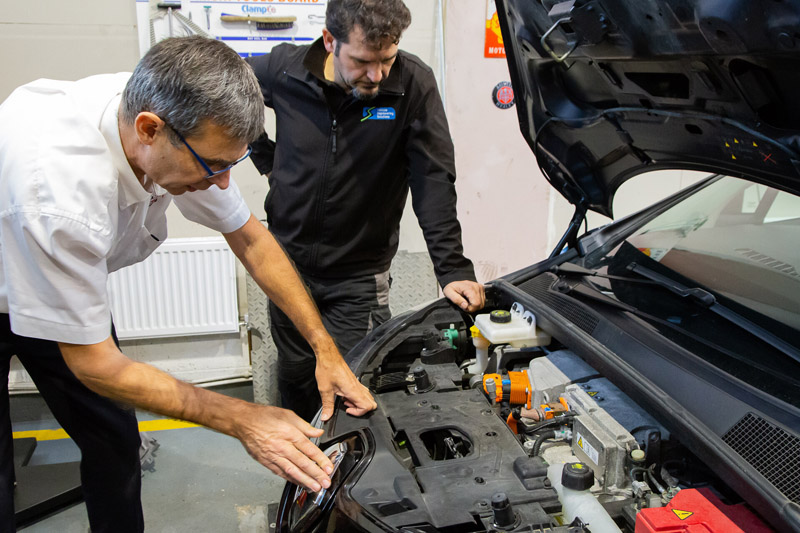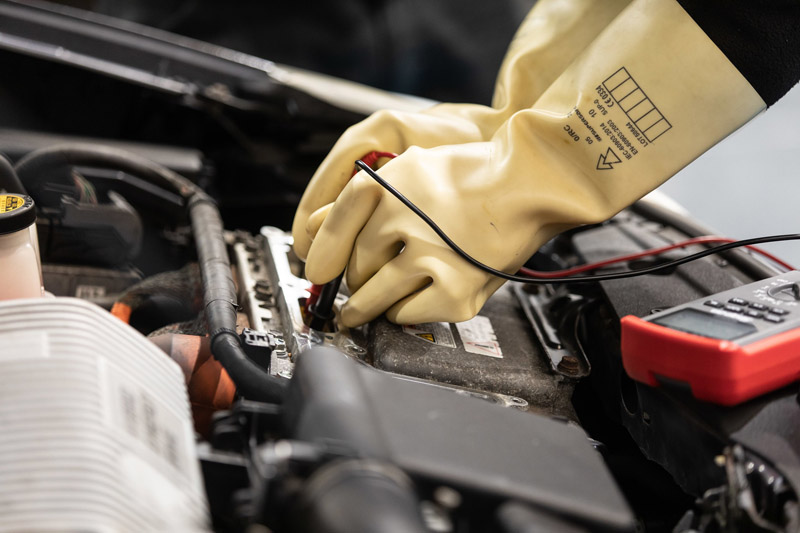
Autotech Training puts forward the case for starting EV training today in order not to miss out tomorrow.
With increasing consumer demand, greater availability of vehicles and government support, EV sales are increasing in parallel with the development of UK charging point infrastructure. By the end of October 2021, over 345,000 pure-electric cars were reportedly on UK roads, 675,000 including plug-in hybrid models.
The EV car parc is expected to reach 12.7 million during the next 10 years, and, as these vehicles fall out of warranty, garages will ultimately benefit. However, many garage owners, particularly within the independent sector, have inherently viewed electric vehicles as something which will feature within the garage of the future, not today.
There is little doubt that the majority of repair and servicing work carried out within UK garages today is on vehicles with internal combustion engines. However, garage owners are now increasingly being contacted by EV owners for remedial work.
Consequently, the need to be prepared for this EV revolution is no longer something which can be left until tomorrow. Garages could be missing out on additional revenue streams, and risk losing customers to the competition, if they are not equipped or able to manage this rising demand.
Conventional ICE vehicles feature hundreds of moving parts, in comparison, while featuring complex electrical components, the number of parts within an electric vehicle is dramatically less. Full diagnostics on EVs may be some way off for the vast majority of vehicle technicians, but having the skill-set to carry out even the most basic of repairs, including the maintenance of brakes, tyres and wipers, is becoming essential.
Safety first
Employers have a duty of care to ensure any vehicle technician working on an EV holds the necessary skills to work safely on, or around them. First and foremost, before any repair work can be carried out, the garage needs to have an area which is prepared for EVs and has a sufficient amp charge point. Having the right tools is also essential, such as insulated rubber gloves and plastic tools.
Even simple modifications, such as wheel re-alignments, requires the safe isolation of the vehicle’s high voltage system. Since power will still remain in the battery, vehicle technicians will need to remain vigilant.
“Not only will training ensure that a technician holds the relevant skill set, but it will also safeguard them against injury,” comments Mandla Ndhlovu, Training Delivery Director for Autotech Training.
“We cannot lose sight of the fact that these are high-voltage vehicles, and the industry has a duty of care to ensure vehicle technicians have the necessary skills to work safely on, or around them. Employers may find themselves liable if an untrained employee is injured while working around an electric vehicle.”

EV training
Autotech Training, a division of Autotech Group, is beginning to see an uplift from the independent sector.
“For many garage owners there was an overriding belief that EV repairs and diagnostics work would take several years to filter through to the independent market and, for some, this shift would take place several years after their retirement. But many are now opting to train at least one vehicle technician within their garage to ensure they are prepared,” comments Mandla.
Consequently, demand for electric vehicle training courses is increasing. The starting point for any vehicle technician is a Level Two qualification, which is designed for those who will encounter electric/hybrid vehicles within a routine maintenance situation. It also contains the knowledge and skills required to work safely around a vehicle that may have had damage to its high energy/electrical system. The next stage, Level Three, equips the technician with the knowledge of how the electrical circuits of an EV operate, and how the high voltage and low voltage circuits interact with each other, while Level Four teaches how to carry out repairs on live, high voltage vehicles and focuses on in-depth diagnostics of the systems within an EV.
Unfortunately, many first time EV owners will have a very basic knowledge of EV maintenance when they drive their car off the forecourt. While still under warranty, they will inevitably contact their local garage for remedial work.
Simple repair work on an EV means additional time for the garage, from safely isolating the high voltage system from the rest of the vehicle, to correctly re-instating it. This is something that customers are largely unaware of. Having the knowledge and explaining the process to a customer is imperative.
“There is a whole new level of education around electric vehicles needed from the consumer through to the garage owner.” Autotech Training, offers a range of electric/hybrid vehicle courses either from its EV training suite in Milton Keynes or on the premises of any garage or organisation.









